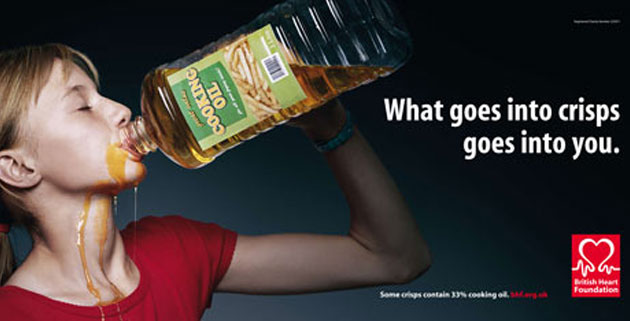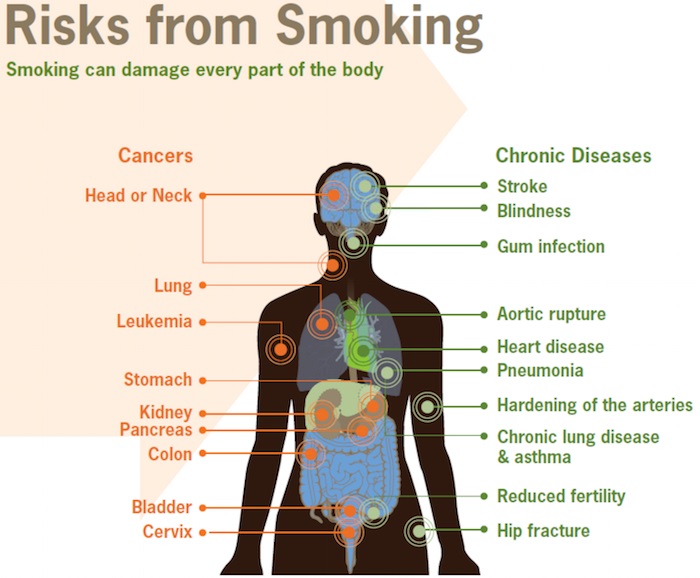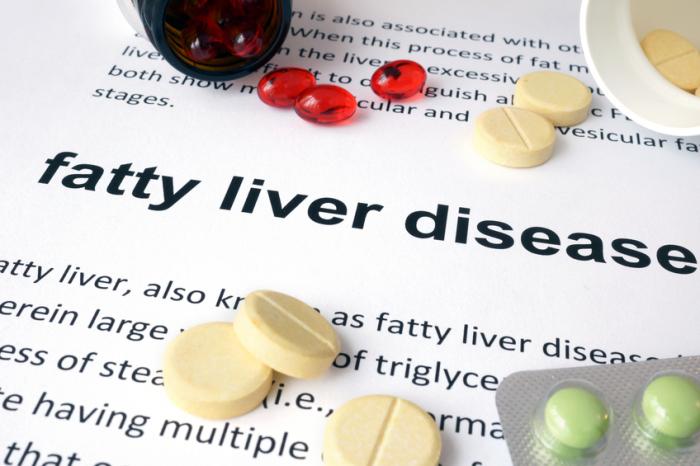
Smoking and vegetable oils cause disease via exactly the same mechanism. We don’t force our children to smoke, so why are we forcing them to consume vegetable oils?
People who smoke are up to six times more likely to suffer from heart disease than non-smokers. So it should not be surprising that researchers have concluded that the significant reduction in smoking over the last 50 years has been a major driver behind the parallel reduction in heart disease rates. Though you might be surprised to discover that until very recently, scientists have had no idea why that might be.
Cancer accounts for less than a third of deaths attributable to smoking whereas heart disease and stroke accounts for almost half. Lung cancer is an obvious consequence of inhaling a cloud of chemicals intentionally. But figuring out how that might be related to ‘clogged arteries’ has been a little tricky. And it hasn’t been made any easier by a fundamental error in our understanding of heart disease.
If your base assumption is that dietary saturated fat clogs up the arteries and causes heart disease, then it’s hard to see how smoking would make the slightest bit of difference. But in the last 15 years that simplistic explanation has been turned on its head. Yes, the immediate cause is blockage, but that blockage is the result of a process of inflammation and immune responses, not because a lump of bacon fat got stuck.
We now know that heart disease is caused by oxidative stress provoking an immune response which starts as damage to the arteries and can ultimately end in heart disease. And thanks to a decade of significant research in the area, we know that chemicals contained in cigarette smoke directly cause exactly the required state of oxidation, inflammation and immune response. Specifically, those chemicals are α,β-unsaturated aldehydes (aldehydes for short).
It turns out that burning tobacco is a really excellent way to produce aldehydes in seriously dangerous quantities. And inhaling the smoke produced is an almost perfect way to get them into our bloodstream. Once aldehydes are in our body, the damage they can cause extends way beyond heart disease. They are powerfully toxic carcinogens as well and likely (via sperm mutation) to play a primary role in the development of childhood cancers.
This is why the US surgeon general found in 2006 that smoking impacts nearly ‘every organ of the body’ and that there is ‘no risk-free level of exposure’ to cigarette smoke (even if you aren’t the one doing the smoking).
 But intentionally sucking in aldehydes from burning grass isn’t the only way to come across them, we can also make them ourselves if we have too much omega-6 polyunsaturated fat in our diet. Vegetable oil made from seeds (Canola, Sunflower, Corn, Safflower, Grapeseed, Rice Bran and Soybean for example) -seed oils – are very high in omega-6 fats. When we eat those fats they are incorporated into every cell membrane in our body and create a state of oxidative stress which results in the production of these highly toxic aldehydes.
But intentionally sucking in aldehydes from burning grass isn’t the only way to come across them, we can also make them ourselves if we have too much omega-6 polyunsaturated fat in our diet. Vegetable oil made from seeds (Canola, Sunflower, Corn, Safflower, Grapeseed, Rice Bran and Soybean for example) -seed oils – are very high in omega-6 fats. When we eat those fats they are incorporated into every cell membrane in our body and create a state of oxidative stress which results in the production of these highly toxic aldehydes.
Ironically, the Heart Foundation’s misguided understanding of how heart disease worked has led them to tell us to consume more of the very substance which we now know causes it and most of the cancers which now afflict us. These seed oils are exactly the substances that the Heart Foundation has been telling us to consume instead of ‘artery clogging’ saturated fats for the last five decades. And we have dutifully done as we are told.
McDonald’s for example switched from frying in Beef Fat to Canola oil in 2004 after incessant pressure from the Heart Foundation. And KFC followed suit in 2012. Seed oils are now the primary source of fat in almost all food on the supermarket shelf, at the local snack bar and served in every restaurant.
While the aldehydes we make ourselves (from consuming too much seed oil) are devastating enough, it is now becoming abundantly clear that we can make them even more dangerous than they already are. All we need to do is heat them before we eat them.
A study released late 2015 found that when oils containing Omega-6 fats are heated at a normal cooking temperature (of 180⁰C), they create significant quantities of aldehydes. And each time the oil was re-used the concentration increased massively. The study showed that by the fifth day of oil re-use it had 5 times the concentration of these chemicals that it had on the first (which was already alarmingly high).
 This is why we are now seeing lung cancer (for example) affect large numbers of people who have never smoked but who do cook with seed oils. And it also likely to be the reason why, even though the average smoker now smokes much less than the average smoker in the 1960s, they are much more likely to die from smoking related diseases.
This is why we are now seeing lung cancer (for example) affect large numbers of people who have never smoked but who do cook with seed oils. And it also likely to be the reason why, even though the average smoker now smokes much less than the average smoker in the 1960s, they are much more likely to die from smoking related diseases.
The science has converged on a single unifying truth. Many cancers and heart disease are caused by aldehydes. And whether we encounter them by smoking, inhaling other people’s smoke, inhaling vapours from food frying or by eating the food cooked with those seed oils, the damage is the same and it is devastating.
None of this is speculation. It well established science that is being ignored by those we trust to advise us about our health. They are happy to accept that exposing us to cigarette smoke will cause heart disease and cancer. They are even happy to accept that it is a major risk factor for childhood cancer in children who have never been exposed to smoke. But when science tells us that seed oils work by exactly the same mechanism, they tell us to consume more. They might as well force us and our kids to have a 3 pack a day habit – and offer us a light.
Image Credits: Risks from Smoking from the Centers for Disease Control and Prevention. Toxic Oils from The Telegraph.

















Ah so! so What? Use butter and/or margarine instead?
Use butter, ghee, animal fat or fruit (Olive, Coconut, Avocado) oils instead of Margarine or any other product made from seed oils.
I try to cook with coconut oil some of the time, but am deterred sometimes because of the cost. I have noticed though, that coconut oil is sometimes a little bit cheaper when it has been processed. Can I assume that this processed coconut oil is not the best for cooking as the virgin, unrefined oil?
And what is your qualification for all of this again?
Refined oils smoke less because impurities have been removed. I have no problem using them.
Most foods eaten to excess with no exercise are going to cause an issue!
Hi David, again an excellent post. I read all your articles and books and i’m a fan. But one thing is not correct: it is not the (slow) clogging of the arteries which causes heart attacks. It’s is the shortage of the endogenous hormone strophantine (Ouabain in the US) which is being produces by the adrenal gland. The inflammation (or other external stress) reduces the functionality of this gland and thus the productions of strophantine. Please read this article: http://jeffreydachmd.com/wp-content/uploads/2014/08/Thomas_Cowan_What_Causes_Heart_Attacks_Townsend_Letter_2014.pdf. Hope this helps; kind regards. patrick van zandvoort (the netherlands)
There is much more than the formation of aldehydes going on with the consumption of Linoleic acid – the major component of seed oils. There is good evidence that they produce an inappropriate insulin sensitivity in adipose tissue – weight gain, HNE4 and more.
A good place to get up to speed on this is with the papers linked from Petro’s site at hyperlipid.
I wa also going to mention Thomas Cowen or Knut Sroka re
http://heartattacknew.com/
I am deeply suspect of the demonisation of smoking as a diversionary tactic and of any research where huge corporate budgets operate alongside carreer advancements and socio-political movements, and the danger of piggybacking on top of such studies is of reinforcing it as a currency of fact – just as was the anti butter and sat fats, cholestreol demonisation, and anti sunlight. I understand that the desire to alarm and leverage others away from harm reaches for whatever means grab attention and associate the import of the message. Thus we have a society of mind-manipulation rather than communication.
I feel that all triggers of oxidative stress – including toxicity (of denatured foods or unnatural degrees of exposure to chemicals) – AND all vectors of the appropriate biological functions of containing, repairing and clearing the results of such stresses or toxicities – are cumulative and synergistic – with individual variations as to pathways of susceptibility.
So while I support the warning agains oils that turn to free radical transfats on heating or just because they are highly unstable once separated out from their seeds – as well as acquiring chemicals from some means of extraction – I would rather teach the core principles that oxidative stress that is naturally met by healthy parasympathetic function and expand the education of all that contributes to imbalance – along with growing trust in our body to function – rather than framing everything in a fear narrative. The latter is the realm of the attempt to unsettle and redirect the mind into corporate capture – or hostage to the body and the world of its relations.
Basically – many oils that seem healthy are not – for a variety of reasons – depending on various factors. Even cold pressed seed oil may be very unsuited for cooking. As far as I am aware, EV coconut oil, Grass fed butter, EV olive oil, are better suited for cooking – but none of these are used in processed food manufacture. Generally processed foods are likely to be denatured and toxic in degrees that becomes a liability when habitual and frequent.
In a toxic world that cannot be escaped – the need is for aligning with health as a positive capacity to fend of, clear out and remain free of harm – rather than a fearful siege under an ever growing sense of hostile and toxic alarm and violation.
[…] Source: Why vegetable oils are much more deadly than cigarettes, David Gillespie. […]
[…] who remain fertile have DNA that has been damaged by oxidative stress. This is caused by the inhalation of aldehydes which promote […]
[…] – samojen myrkyllisten aldehydien aiheuttamasta kuin tupakastakin – vaietaan visusti. Tämän kirjoittajan artikkelin monet sivuuttavat helposti salaliittoteorioiden lietsomisena, mutta taustalta löytyvät […]
So what about nut oils, like peanut oil?
These are becoming more common in the U.S. at places like Chic-fil-a and Asian restaurants.
Nut and legume oils are usually close to as bad as seed oils
And this is of course backed up by evidence? Scientific studies? Longitudinal studies?
Or is it just pseudo scientific bullshit?
Shaun the evidence is linked in the article.
Ho appena letto un cumulo di stronzate: se fosse vero noi popoli mediterranei, ma anche gli asiatici, ci saremmo dovuti estinguere da millenni, invece siamo quelli che vivono piu’ a lungo e meglio, non si puo’ dire la stessa cosa degli statunitensi o di altri barbari che si nutrono soltanto di cibo industriale.
Azzardo un’ipotesi: che sia il cibo industriale (e tutte le porcherie chimiche in essi contenute) ad ammazzare i barbari?!
Ve lo dico andando contro i mei interessi e quelli della nostra specie che si fonda sulla “selezione naturale”.
Google translate version of this:
I just read a pile of bullshit: if it were true we Mediterranean peoples, but also the Asians, we would have had to extinguish for millennia, instead we are the ones who live longer and better, the same thing can not be said of the Americans or of other barbarians who feed only on industrial food.
I venture a hypothesis: that it is industrial food (and all the chemical rubbish contained therein) that kills the barbarians ?!
I tell you going against my interests and those of our species which is based on “natural selection”.
Please clarify the difference between high-oleic sunflower oil vs regular sunflower oil. There is a company that makes a very popular health food containing high-oleic sunflower oil. The company states that it is completely different than sunflower oil and “completely healthy.”
I’m a biomedical engineer and have recently had this article sent to me by my mother. I have just got to say the fake science posted in this blog is deeply irresponsible and downright pathetic. You have no citations mentioned for any of your fear mongering statements. You have done very little research on the topic and seem to be under the impression that all aldehydes are carcinogenic which is blatantly false. Your sources are from media outlets and not peer reviewed journals. Your lack of scientific communication skills indicate that you don’t have any relevant qualifications in this field and therefore have NO RIGHT to make any statements about it. You are nothing but a fear mongerer trying to drum up interest in a shitty blog. Please anyone that is reading this crap blog post, go to this page instead for REAL CITED INFORMATION:
https://www.ift.org/news-and-publications/food-technology-magazine/issues/2018/may/features/do-cooking-oils-present-a-health-risk
Hi David, what about the hypothesis of oxidised LDL by industrial seed oils resulting in small/dense LDL not bening taken up by the liver due to destroyed ApoB protein thus being collected by macrophages and forming foam cells in the endothelia resulting in atherogenic plaque?
Thank you for sharing David; more power to you!
I cover that in some detail in the book Toxic Oil
You don’t happen to be the Jamie Thomson who works as Customer Service Representative at KFC do you?